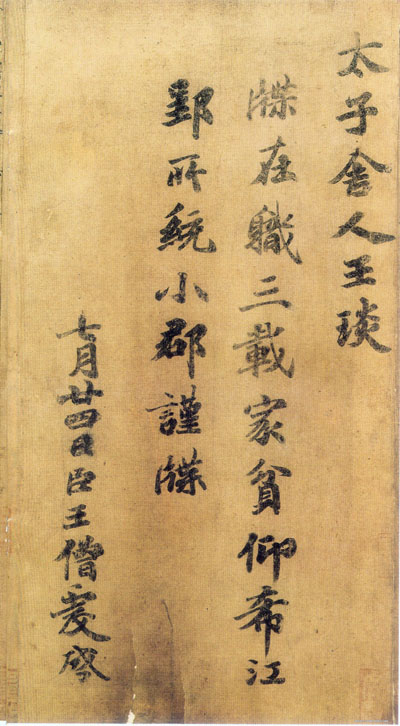Wang Sengqian (426-485) was a native of Linyi, Langya. Calligrapher of the Qi Dynasty in the Southern Dynasties. The courtesy name is Jian Mu, the fourth generation grandson of Wang Xizhi. Official to Shangshu Ling. He likes literature and history, is good at music and rhythm, is good at calligraphy and calligraphy. The book inherits the ancestral law, is rich, simple and strong. The original biography of "Qishu" says: "The monk was pious and good at regular script. When Emperor Wen of the Song Dynasty saw his calligraphy on a plain fan, he sighed: 'It's not just the traces that surpass Zijing, but the elegance of the vessels.'" "Book Break" by Zhang Huaiguan of the Tang Dynasty Said: "Zu Shu Xiao Wang, especially the ancient uprightness, if the stream contains ice and the hills and mountains are covered with snow, although it is very pure, it is less than the flavor." Dou Xie's "Shu Shu Fu" said that the book: "To achieve richness, gain and lose." Strong. Angry and vigorous, blocking any strong. However, the spirit is high and full of energy, and the spirit is sharp. The hair is curled and the paper is stretched out, and the eyes are full of glory." The ink is "Wang Yan Tie". He is the author of "On Calligraphy", "Praise of Writing", etc.
"Wang Yan Tie" (also known as "Prince Sheren Tie" and "Incumbent") is found in the Tang copy of "Long Live Tongtian Tie" collected by the Liaoning Provincial Museum. It is said to be a Tang copy of Wang Sengqian's calligraphy.

Explanation:
Prince Wang Yan
dispatch. After working for three years, my family is poor and I look up to the Xijiang River.
I would like to give an ultimatum to the small county under the control of Ying.
On the 24th day of the seventh lunar month, the minister Wang Monk Qianqian started the ceremony.








